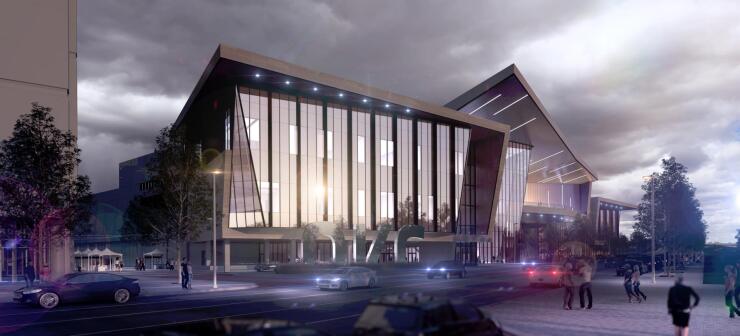DALLAS – Triple-A-rated Oklahoma City plans to use $85 million of revenue bonds to finance its share of a $235 million Omni hotel adjoining its new convention center.
The 7-2 city council vote to finance its 36% share of the hotel project comes ahead of a $1.2 billion bond election Sept. 12.

Under the convention center hotel plan approved by the council Tuesday, the Omni hotel operator will provide $150 million toward construction costs, officials said.
The bonds are also supported by a tax-increment finance district designed to capture the increasing property value of the 600-room hotel.
Hotel occupancy taxes and state matching funds will also be applied to the debt, and a revenue stabilization fund will reduce financial risk, officials said.
The city’s 36% share of the development cost compares favorably to five deals in similar cities, which have public participation ranging from 32% to 61%, city officials said.
The city will build a parking garage in the convention center complex. The Omni is to have 450 spaces in the garage, which also will serve Chesapeake Energy Arena. The hotel will pay market rates for the spaces. The hotel will include 50,000 square feet of ballroom and meeting room space, adding flexibility for convention planners.
Early plans for the 600-room Omni hotel call for a mid-rise tower to be designed by architect HKS, with about 570,000 square feet of total space. The full-service, four-star hotel will have six restaurants and bars with about 16,500 square feet of space, plus more than 50,000 square feet of ballroom and meeting space, officials said.
Construction of the $288 million convention center, funded under the voter-approved MAPS 3 program, is set to begin this year. The new center featuring a 200,000-square-foot exhibit hall replaces the city’s current aging facility. Both the hotel and convention center are expected to be completed in 2020.
“Having a top-quality, full-service hotel next door to the convention center will maximize Oklahoma City’s return on an important investment in the increasingly competitive convention business,” said city manager Jim Couch.
While both Moody’s Investors Service and S&P Global Ratings have triple-A ratings on the Oklahoma capital city, Moody’s has a negative outlook, based on the city’s reliance on sales tax for half its revenue.
“The negative outlook reflects the ongoing challenge to achieve structurally balanced budgets as sales tax collections continue to underperform,” analysts said.
In the special election Sept. 12, the city will ask voters to permanently approve a 0.25- sales tax that would add an estimated $26 million per year to the general fund. The proposal includes the council’s stated intention to use the funds to pay for hiring additional police officers, staffing two additional fire stations and bringing an idled fire engine back into service. The funds would also allow the city to reverse cutbacks to other critical services included in recent budgets.
Another proposal asks voters to approve a temporary, 27-month continuation of the expiring MAPS 3 penny sales tax to fund $240 million for street resurfacing, streetscapes, trails, sidewalks and bicycle infrastructure.
The MAPS (Metropolitan Area Projects) is a capital improvements program that uses a 1-cent sales tax for debt-free projects first approved in 1993. MAPS 3 was approved by voters in 2009.
In the September bond election, the largest request is a 10-year, $967 million bond package for streets, police and fire facilities, parks and other basic needs.





